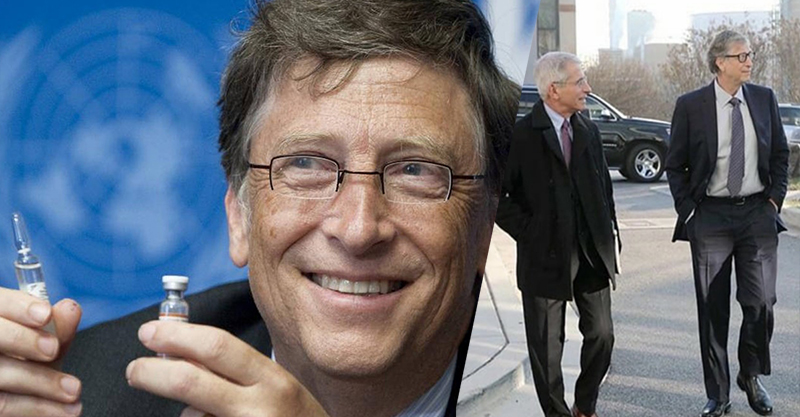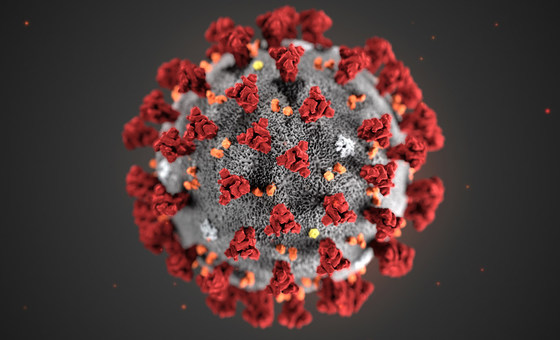Bill Gates’ Plan to use Microneedles to Deliver COVID-19 Vaccine and Embed Vaccination Status into Skin

Health Impact News Editor Comments
Last year (2019) we published an article about how Bill Gates was working with a group at the Massachusetts Institute of Technology and had developed a method of embedding a person’s vaccination record directly into their skin using a special dye that is invisible to the naked eye.

It uses a new technology of microneedles which also can more easily deliver a vaccine with a “Band-Aid-like device” that is placed on the skin. A skilled nurse or technician is not required to administer the vaccine which also implants the patients vaccination record into their skin like a tattoo, allowing for more rapid delivery of vaccines.
Celeste McGovern, writing for GreenMedInfo.com, writes that this technology is now being deployed for the new COVID-19 vaccines.
Bill Gates and Intellectual Ventures Funds Microchip Implant Vaccine Technology
by Celeste McGovern
GreenMedInfo
The Bill and Melinda Gates Foundation has donated more than $21 million towards developing a vaccine technology that uses a tattoo-like mechanism which injects invisible nanoparticles under the skin that is now being tested in a vaccine against the virus that causes COVID-19.
The microneedle technology is also being wed to injectable technology, funded by the Bill and Melinda Gates Foundation, which embeds under the skin a vaccination record visible by near infrared light that can be read by smartphone technology.
The Bill and Melinda Gates Foundation is funding the technologies with aims to enable them in “house-to-house” vaccine campaigns undertaken by people with “minimal training.”
Researchers from the University of Pittsburgh reported in their study published April 1 in EBiomedicine, a Lancet Journal, that their microneedle patch vaccine against the SARS CoV-2 virus that causes COVID-19
“prompted robust antibody production in the mice within two weeks.”
The patches resemble a spiky piece of Velcro, with hundreds of tiny microneedles made of sugar. The needles prick just into the skin and quickly dissolve, releasing the vaccine into the tiny abrasions and inducing a potent immune cell response despite the minute amount of the vaccine material – far more potent than an intramuscular injection.
The researchers had been testing vaccine using the microneedle patch for other coronaviruses, including the one that causes Middle East Respiratory System (MERS) and reported that three different experimental MERS vaccines induced the production of antibodies against the virus. These responses were stronger than the responses generated by regular injection of one of the vaccines along with a powerful immune stimulant (an adjuvant). Antibody levels continued to increase over time in mice vaccinated by microneedle patch—up to 55 weeks, when the experiments ended. The researchers have now turned their technology to the COVID-19 virus, SARS CoV-2.
“Testing in patients would typically require at least a year and probably longer,” senior co-author of the study, dermatology professor Louis Falo said. “This particular situation is different from anything we’ve ever seen, so we don’t know how long the clinical development process will take. Recently announced revisions to the normal processes suggest we may be able to advance this faster.”
Another study funded by the Bill and Melinda Gates Foundation and published in December, 2019 by researchers from the Massachusetts Institute of Technology, the Institute of Chemistry of the Chinese Academy of Sciences in Beijing and the Global Good, Intellectual Ventures Laboratory in Bellevue, WA, describes how “near-infrared quantum dots” can be implanted under the skin along with a vaccine to encode information for “decentralized data storage and bio-sensing.”
“To maximize the utility of this technology for vaccination campaigns, we aimed to create a platform compatible with microneedle-delivered vaccines that could reliably encode data on an individual for at least five years after administration,” said the MIT paper, titled Biocompatible near-infrared quantum dots delivered to the skin by microneedle patches record vaccination. “In addition, this system also needed to be highly biocompatible, deliver a sufficient amount of dye after an application time of 2 min or less, and be detectable using a minimally adapted smartphone.”
Fridrik Laurusson, an author of the microchip study, is from The Global Good, Intellectual Ventures Labarotory. Its website features Microsoft founder Bill Gates on its front page and describes itself as a “collaboration between Bill Gates and Intellectual Ventures” a company founded by Nathan Myhrvold and Edward Jung of Microsoft. Wikipedia describes Intellectual Ventures in Gates’ home state as a private American company that “centers on the development and licensing of intellectual property” and “one of the top-five owners of U.S. patents, as of 2011.
“Its business model has a focus on buying patents and aggregating them into a large patent portfolio and licensing these patents to third parties,” according to Wikipedia.
The company has been described as the country’s largest and most notorious patent trolling company, the ultimate patent troll, and the most hated company in tech.
The company has been described as the country’s largest and most notorious patent trolling company,[2] the ultimate patent troll[3], and the most hated company in tech.[4]
The website of the Bill and Melinda Gates lists multiple grants awarded to develop the “microneedle array patch” – for use in “house-to-house campaigns via administration by minimally-trained personnel.”
The most recent grant for $370,035 was awarded in February, 2020 to the Centers for Disease Control and Prevention for an MMR vaccine patch that does not require refrigeration and “enables house-to-house campaigns” via people without medical experience or training.
Bill Gates has awarded much larger grants for microneedle array patch technology to companies and organizations including:
* Vaxxas Pty Ltd in Brisbane, Queensland ($4.99 million in November, 2019) to develop a “microneedle array patch for measles and rubella vaccination that enables house-to-house campaigns via administration by minimally-trained personnel”
Vaxxas was created in 2011 after Mark Kendall’s research group at the University of Queensland commercialized the nanotechnology under the company, UniQuest. The company has raised more than $35 million for the nanotechnology. It’s partnered with vaccine manufacturer Merck – a company whose drug Vioxx caused more than 27,000 deaths by heart attack before the company revealed the risks it had hidden from the public. Merck has repeatedly been accused by judges for “egregious” ethical breaches and of “improper testing and data falsification” on its Gardasil HPV and MMR vaccines. Merck made
Micron Biomedical Inc ($6,744,906 in November, 2019) “to develop a microneedle array patch for measles and rubella vaccination that enables house-to-house campaigns via administration by minimally-trained personnel”
Georgia Institute of Technology ($958,849 in December, 2019) “to develop a microneedle array patch for measles and rubella vaccination that enables house-to-house campaigns via administration by minimally-trained personnel”
Vaxess Inc, ($2,967,741 in November, 2016) in Boston, MA “to support the preclinical development and manufacture of a thermostable microneedle patch with the aim of lowering barriers to vaccine access by simplifying dosing and administration, alleviating cold chain constraints, and lowering costs
Cardiff University ($$3,570,376 in December, 2019) “to develop a dissolvable microneedle array patch for the sustained dermal delivery of a progestin contraceptive, including the conduct of preclinical proof of concept studies”
Gates began funding the implantable biotechnology back in 2011 via a small ($100,000) grant to the Santa Cruz based company TransDerm Inc whose Linkedin page links to a website for the pharmaceutical giant Allergan.
Last month Reuters news service reported – falsely — that a popular Facebook post about Bill Gates planning to use microchip implants to fight the coronavirus pandemic was a “false claim.” The news service linked to the censored Facebook post.
Gates, whose father was the director of Planned Parenthood Federation of America and mother worked for PPFA’s funding affiliate United Way, has been noted for his population control ideology. His wife, Melinda Gates, launched a Family Planning Summit on World Population Day in 2012 with the aim of garnering tax dollars from governments to expand reproductive health services aimed at lowering the global birth rate.






Responses